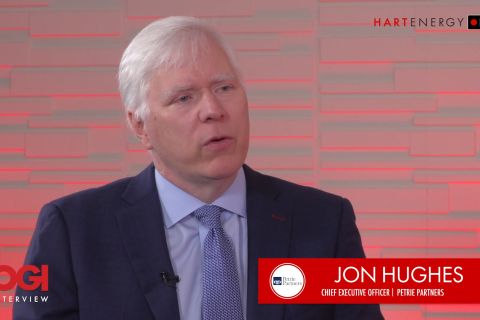Learn more about Hart Energy Conferences
Get our latest conference schedules, updates and insights straight to your inbox.
Stock buyback programs have become increasingly popular for exploration and production companies, with BP Amoco Plc being the latest to say it's likely to join the pack, providing shareholders approve the plan at their annual meeting this month. It will be joining fellow major Texaco Inc. and also independents including Nuevo Energy Co., Cross Timbers Oil Co. and Columbia Energy Group. "With exploration and production company share prices still bouncing along the bottom-both absolutely and relative to history-and the fundamental picture well ahead of the scenario reflected in the marketplace, buybacks are rising on company priority lists," says David C. Bradshaw, an analyst with Donaldson, Lufkin & Jenrette. "Clearly, stock buybacks are more compelling for some than others, as implied reserve values range from less than $3 per barrel for Nuevo with its long-lived heavy reserves to nearly $15 for Newfield Exploration Co.," Bradshaw says. In a written report, Bradshaw applauded "more than a few forward-thinking managements that are opening their checkbooks." The implied public valuation of reserves, as measured by total capitalization per barrel of equivalent reserves based on year-end 1999 reserve reports, is around $6.45 a barrel compared with the five-year average finding and development cost of $5.56, he said. BP Amoco plans a rolling buyback program in the United States and the United Kingdom, tentatively to start in May, providing shareholders approve. In March, Texaco announced plans to resume a $1-billion stock buyback program that was suspended a couple of years ago. Previously, Texaco bought $450 million in stock under the program. Analyst Marshall Adkins of Raymond James & Associates said "buying back stock gets a better return than drilling a hole in the ground." David A. Garcia, senior vice president of First Union Securities Inc., recently told the Houston Energy Finance Group, "There is a disincentive to drill right now because the cheapest reserves are on Wall Street." Bradshaw expects "greater numbers of exploration and production companies will look to share repurchase programs as prudent spending alternatives in the coming months. With the substantial financial firepower available to the independent producers, we expect share repurchase programs to be completed sooner rather than later as managements look to profit from improving upstream sentiment in both the near and extended terms." In February, Fort Worth-based Cross Timbers' board authorized the repurchase of up to 2.5 million shares of common stock, or about 5% of the shares outstanding. "We believe that our common stock currently represents an extraordinary value," said Bob R. Simpson, Cross Timbers chairman and chief executive officer. -Paula Dittrick
Recommended Reading
Shell’s CEO Sawan Says Confidence in US LNG is Slipping
2024-02-05 - Issues related to Venture Global LNG’s contract commitments and U.S. President Joe Biden’s recent decision to pause approvals of new U.S. liquefaction plants have raised questions about the reliability of the American LNG sector, according to Shell CEO Wael Sawan.
BP Pursues ‘25-by-‘25’ Target to Amp Up LNG Production
2024-02-15 - BP wants to boost its LNG portfolio to 25 mtpa by 2025 under a plan dubbed “25-by-25,” upping its portfolio by 9% compared to 2023, CEO Murray Auchincloss said during the company’s webcast with analysts.
Sunoco’s $7B Acquisition of NuStar Evades Further FTC Scrutiny
2024-04-09 - The waiting period under the Hart-Scott-Rodino Antitrust Improvements Act for Sunoco’s pending acquisition of NuStar Energy has expired, bringing the deal one step closer to completion.
The OGInterview: Petrie Partners a Big Deal Among Investment Banks
2024-02-01 - In this OGInterview, Hart Energy's Chris Mathews sat down with Petrie Partners—perhaps not the biggest or flashiest investment bank around, but after over two decades, the firm has been around the block more than most.
Chesapeake Slashing Drilling Activity, Output Amid Low NatGas Prices
2024-02-20 - With natural gas markets still oversupplied and commodity prices low, gas producer Chesapeake Energy plans to start cutting rigs and frac crews in March.





